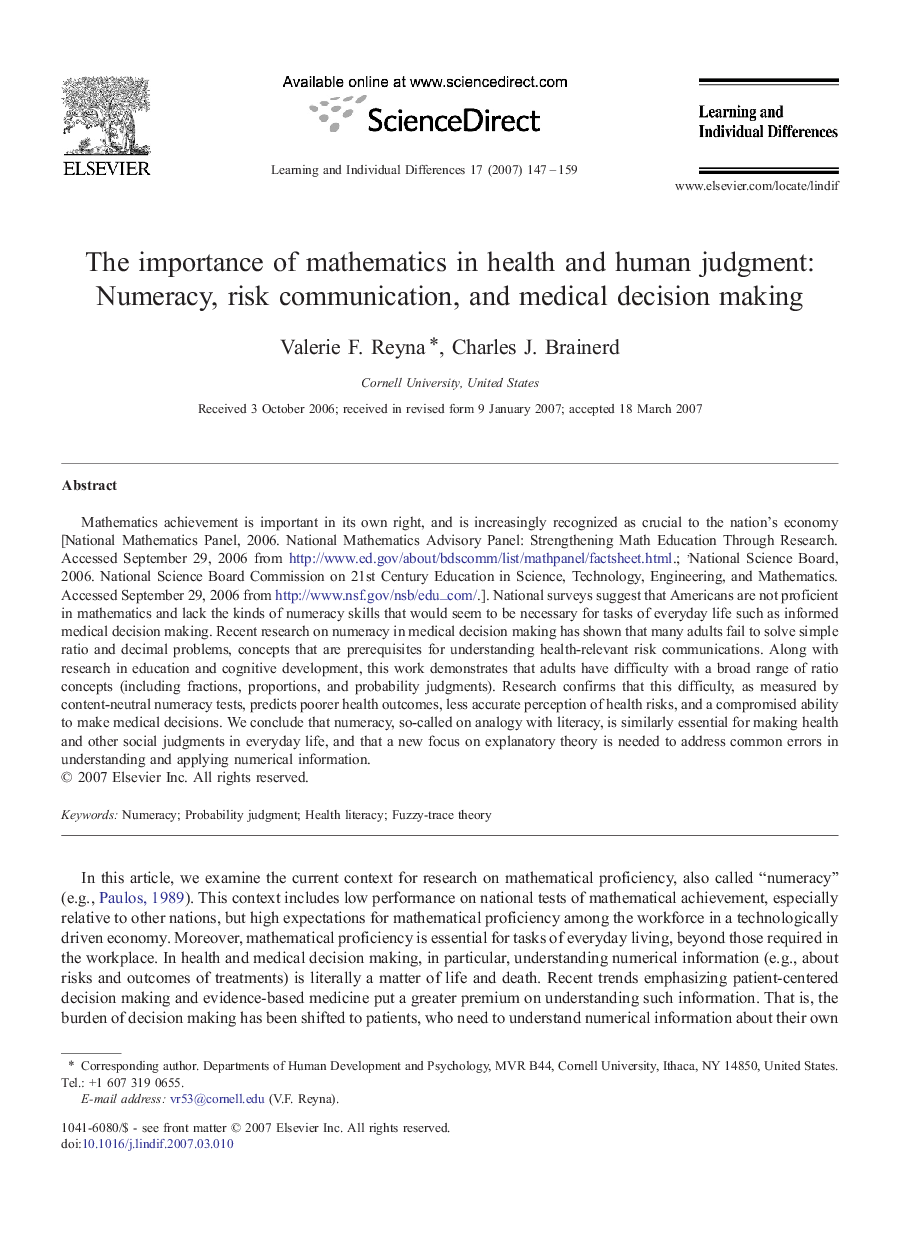| Article ID | Journal | Published Year | Pages | File Type |
|---|---|---|---|---|
| 365233 | Learning and Individual Differences | 2007 | 13 Pages |
Mathematics achievement is important in its own right, and is increasingly recognized as crucial to the nation's economy [National Mathematics Panel, 2006. National Mathematics Advisory Panel: Strengthening Math Education Through Research. Accessed September 29, 2006 from http://www.ed.gov/about/bdscomm/list/mathpanel/factsheet.html.; National Science Board, 2006. National Science Board Commission on 21st Century Education in Science, Technology, Engineering, and Mathematics. Accessed September 29, 2006 from http://www.nsf.gov/nsb/edu_com/.]. National surveys suggest that Americans are not proficient in mathematics and lack the kinds of numeracy skills that would seem to be necessary for tasks of everyday life such as informed medical decision making. Recent research on numeracy in medical decision making has shown that many adults fail to solve simple ratio and decimal problems, concepts that are prerequisites for understanding health-relevant risk communications. Along with research in education and cognitive development, this work demonstrates that adults have difficulty with a broad range of ratio concepts (including fractions, proportions, and probability judgments). Research confirms that this difficulty, as measured by content-neutral numeracy tests, predicts poorer health outcomes, less accurate perception of health risks, and a compromised ability to make medical decisions. We conclude that numeracy, so-called on analogy with literacy, is similarly essential for making health and other social judgments in everyday life, and that a new focus on explanatory theory is needed to address common errors in understanding and applying numerical information.
